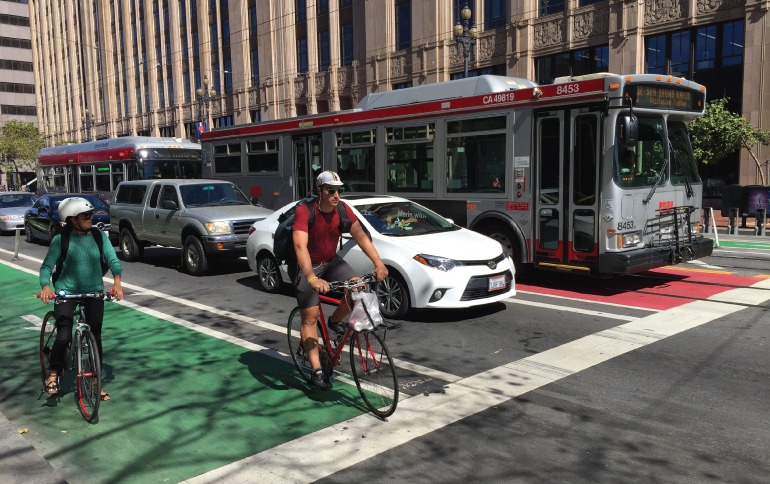TMD undertook the first-in-a-generation comprehensive market, service, and operations rethink of the San Francisco Municipal Transportation Agency (SFMTA) (Muni Metro LRT, historic streetcar, cable car, trolleycoach, and motorcoach). The Transit Effectiveness Project (TEP) was a collaborative effort with both SFMTA and the City Controller to support the redevelopment of the Muni network of services and delivery systems within a sustainable financial plan. TMD analyzed existing and potential Muni markets, consumer expectations, service ridership and performance, and daily rail and bus operations (service management, vehicle and crew scheduling, and operator/vehicle availability/utilization). Financial, operational, and organizational development, transit preferential street design, and stakeholder participation were also included in the core tasks. Stakeholders were highly involved throughout the process via inclusive, transparent outreach that involved a broad cross section of San Franciscans (leadership, advocates, riders, citizens, labor, and staff) using multiple forums.
The proposed Muni redevelopment plan included a new network of Rapid Rail and Bus (BRT/Rapid) corridors with major reinvestment in increased service levels, transit priority (20% faster times), information technology, upgraded passenger facilities, pedestrian amenities, and integrated bicycle planning. TMD prepared implementation plans for four pilot Rapid corridor segments (Judah/Irving LRT, Mission-BRT, Market Street-Bus/Streetcar, Potrero/San Bruno-Rapid Bus) based on Great Streets and transit priority best practices. The TEP also recommended initiatives to expand both the LRT (Daly City) and streetcar (Mission Bay/Fort Mason) networks. The local bus network also received additional capital, while community and neighborhood transit was refocused on improved short-distance travel and connection to the Rapid network. The TEP recommendations also included a major capital plan for investment into passenger facilities, transit preferential streets, operating facilities, and technology. Updated scheduling and operating management practices were also recommended in order to facilitate improved service quality and efficiency.
The Metropolitan Transportation Commission lauded the SFMTA TEP and another TMD project, the Santa Clara VTA Comprehensive Operational Analysis (COA), as successful models for the Bay Area. Positive rider and public response welcomed the first phases of Muni Forward: new Mission pre-Rapids, Fulton Rapid, and systemwide all-door boarding; which were successfully implemented beginning in 2010. The implementation has been highly successful as each corridor has been implemented with significant sustained ridership growth (e.g., Fulton ridership nearly doubled from 2010 to 2016).

